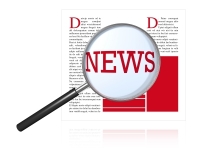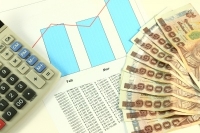Cybersecurity
LIBRARY CATALOGS
Look in the following catalogs for books, videos and other types of audiovisual items held in libraries.
C.O.D. Library Catalog : the C.O.D. Library only
I-Share (formerly Illinet Online): A catalog for items in 70 Illinois academic libraries
WorldCat: A catalog for items in this country and around the world
Other Nearby Public and Academic Libraries
Outline of the Library of Congress Classification System (what C.O.D. uses to shelve its books).
LSTA GRANT
In May 2013, the C.O.D. Library was awared $5000.00 by the Illinois State Library, as part of a Federal Library Services and Technology Act (LSTA) grant, to purchase books on Cybersecurity/Information Warfare/Computer Forensics. Click HERE to see a list of those books that were purchased.
REFERENCE BOOKS
CREDO REFERENCE. Type in your terms in the search box to find articles from many different online reference books.
GALE VIRTUAL REFERENCE LIBRARY. Type in your terms in the search box to find articles from many different online reference books.
Encyclopedia of Cybercrime. Reference HV 6773 .E 53 2009
Encyclopedia of Internet Technologies and Applications (2008)
Encyclopedia of Transnational Crime and Justice (2012)
Encyclopedia of Social Networks (2011)
The Internet: A Historical Encyclopedia. Reference TK 5105.875 .I 57 I 5372 2005
The Internet Encyclopedia. Reference TK 5105.875 .I 57 I 5466 2004
SAGE Encyclopedia of Terrorism (2011)
DATABASES
WEBSITES
College of DuPage Computer Information Systems Academic Program
College of DuPage Computer and Internetworking Technologies Academic Program
College of DuPage Criminal Justice Academic Program
College of DuPage Suburban Law Enforcement Academy (SLEA)
U.S. Central Intelligence Agency (CIA)
U.S. Department of Defense (DOD), Cybersecurity
U.S. Department of Energy (DOE), National Security and Safety
U.S. Department of Homeland Security (DHS), Cybersecurity
U.S. Federal Bureau of Investigation (FBI)
U.S. National Institute of Standards and Technology (NIST), Computer Security Resource Center (CSRC)
U.S. National Security Agency (NSA)
U.S. National Security Council (NSC), Cybersecurity


 Copyright plays a significant role in both face-to-face and online teaching. If you show images or films in your class, copy articles or chapters, use Blackboard or blogs, you should familiarize yourself with the copyright issues that impact you and your students.
Copyright plays a significant role in both face-to-face and online teaching. If you show images or films in your class, copy articles or chapters, use Blackboard or blogs, you should familiarize yourself with the copyright issues that impact you and your students.